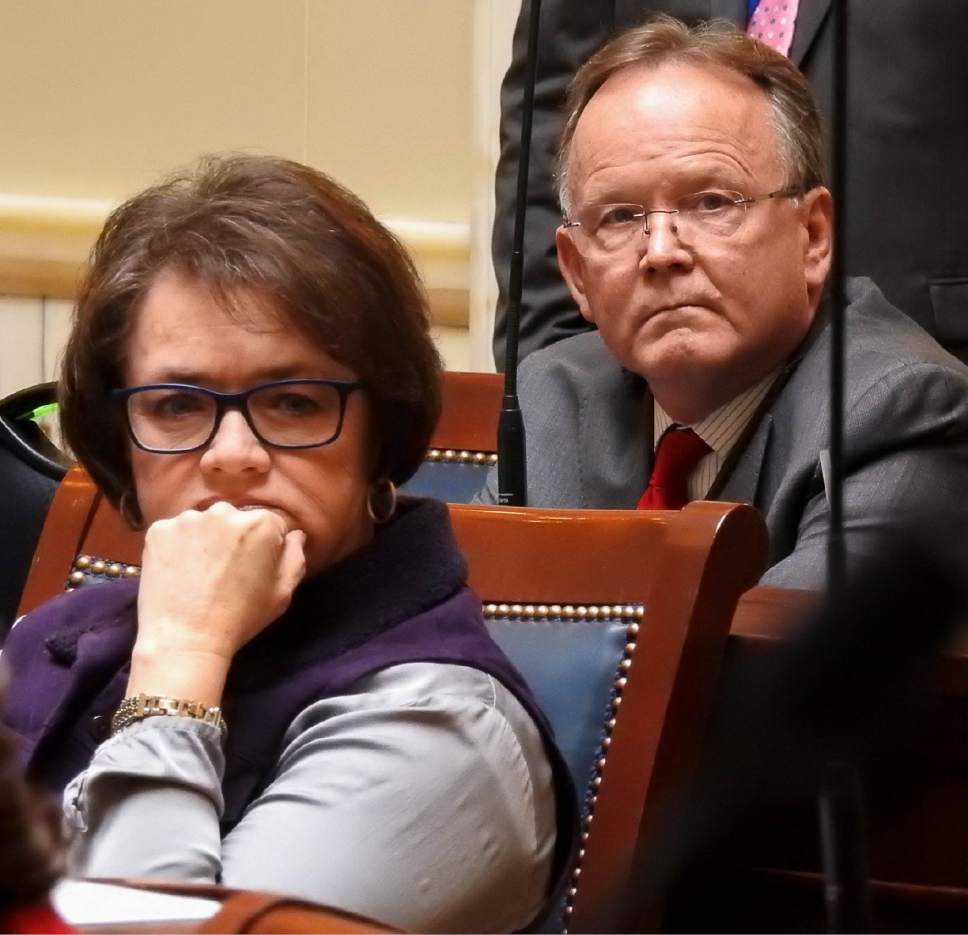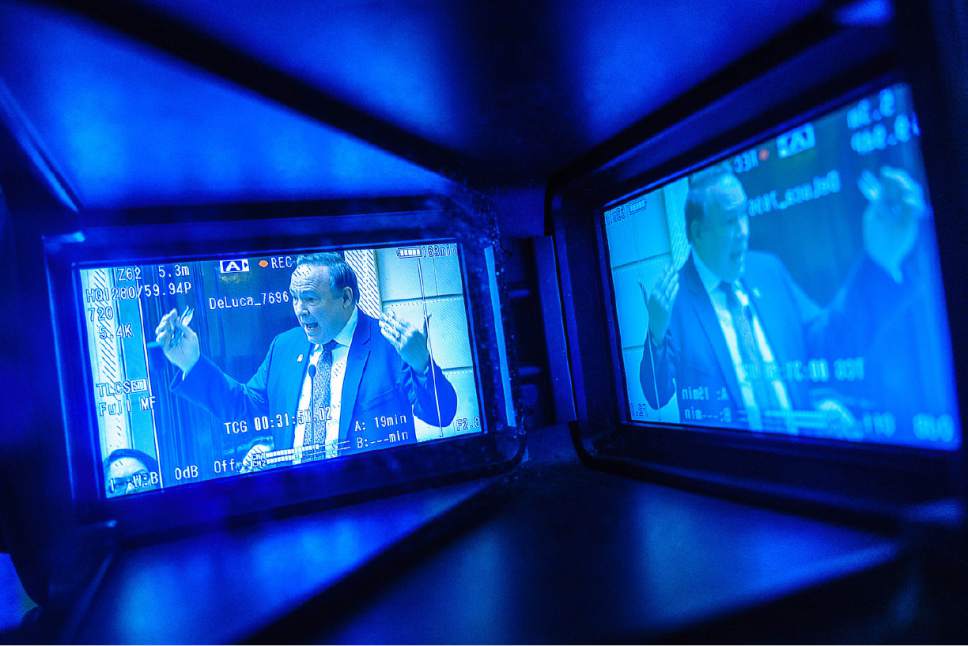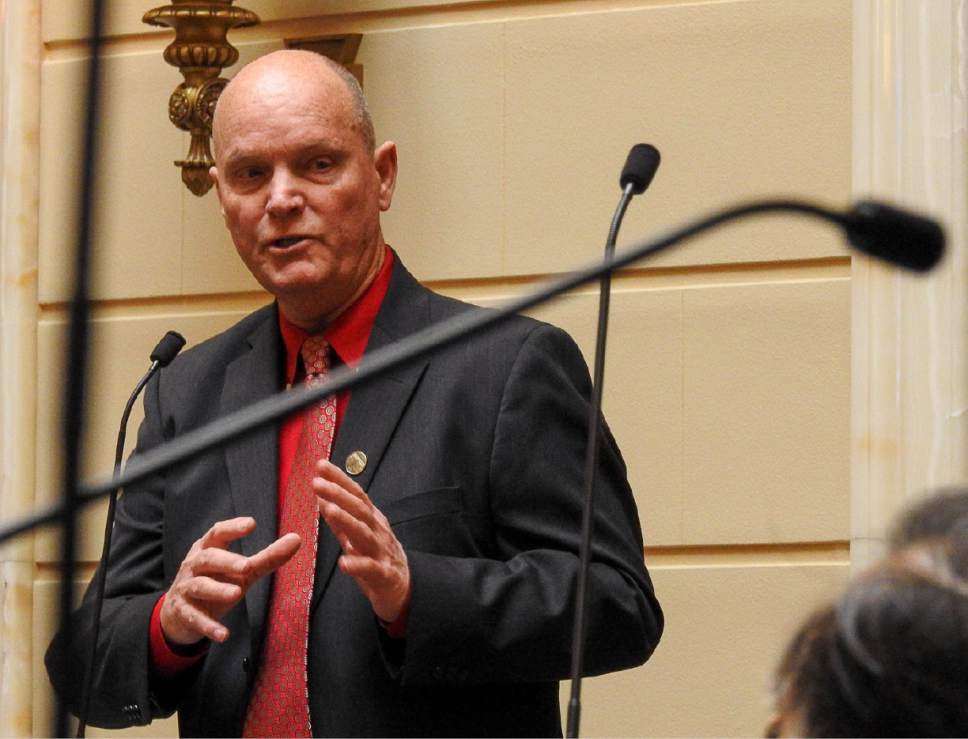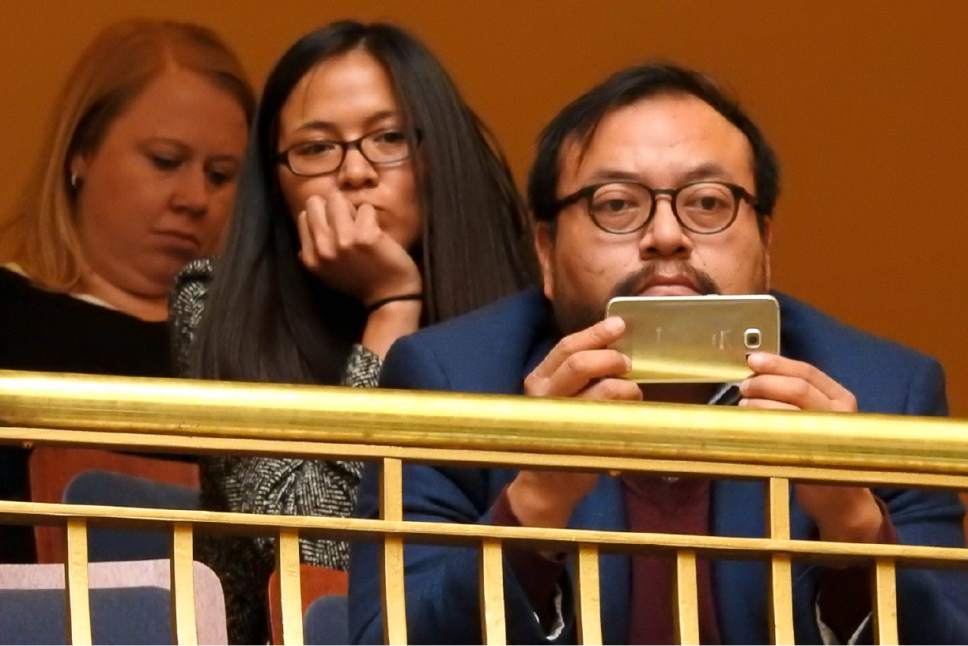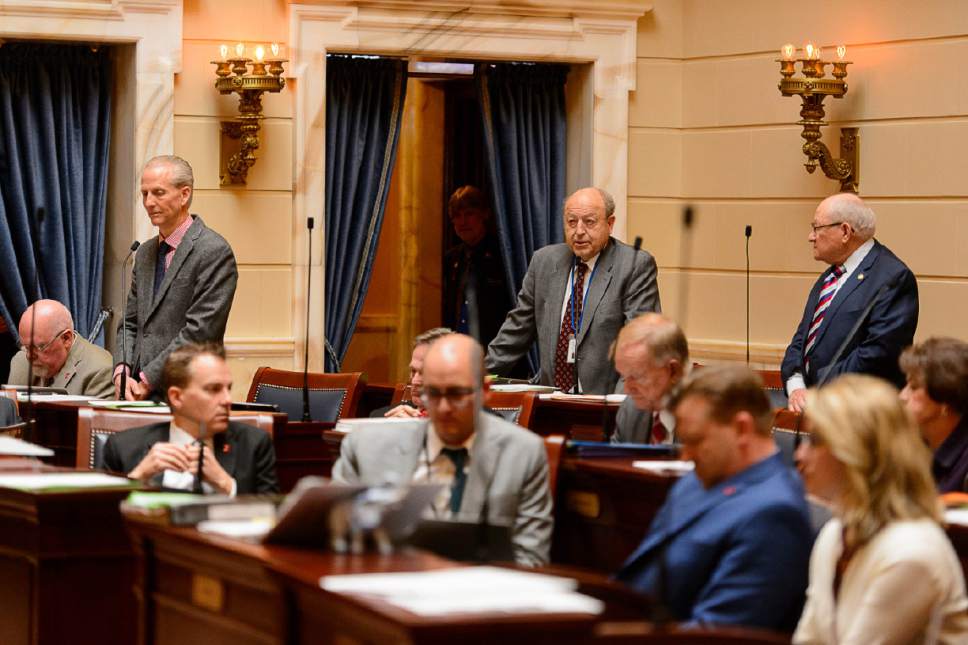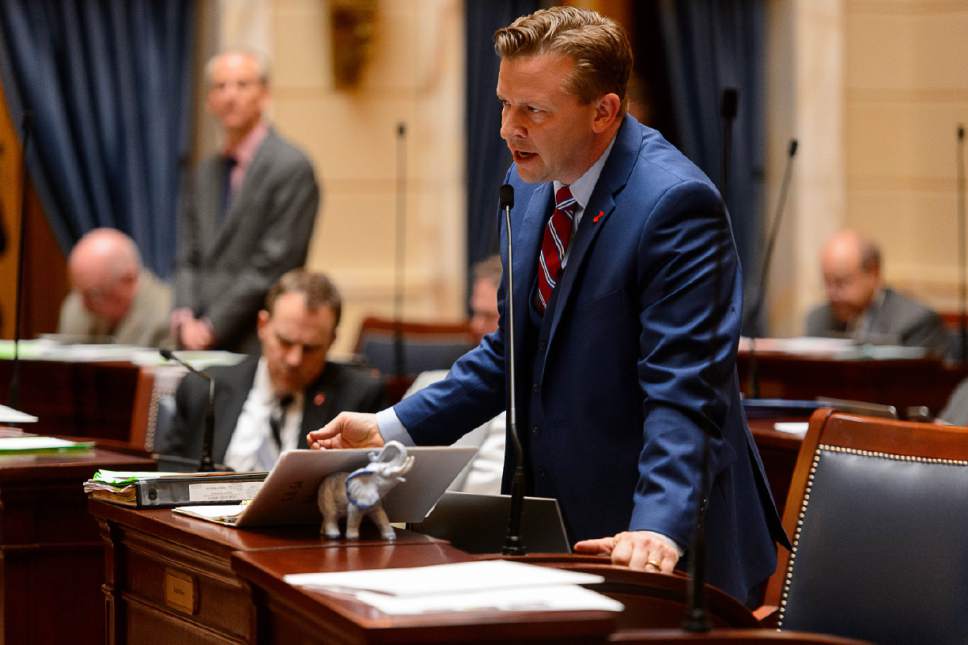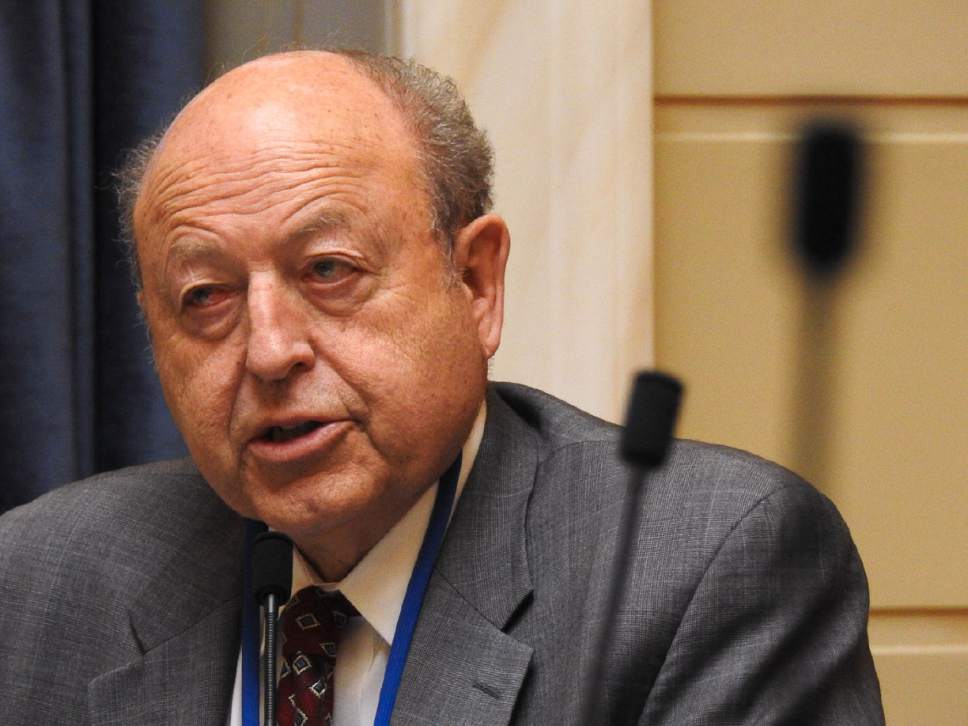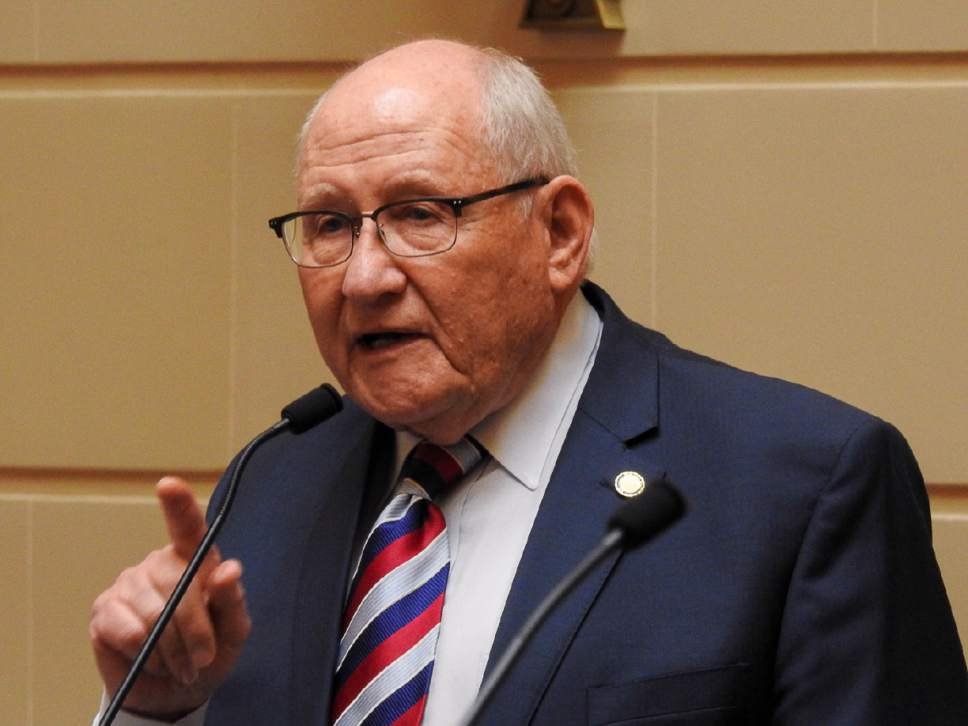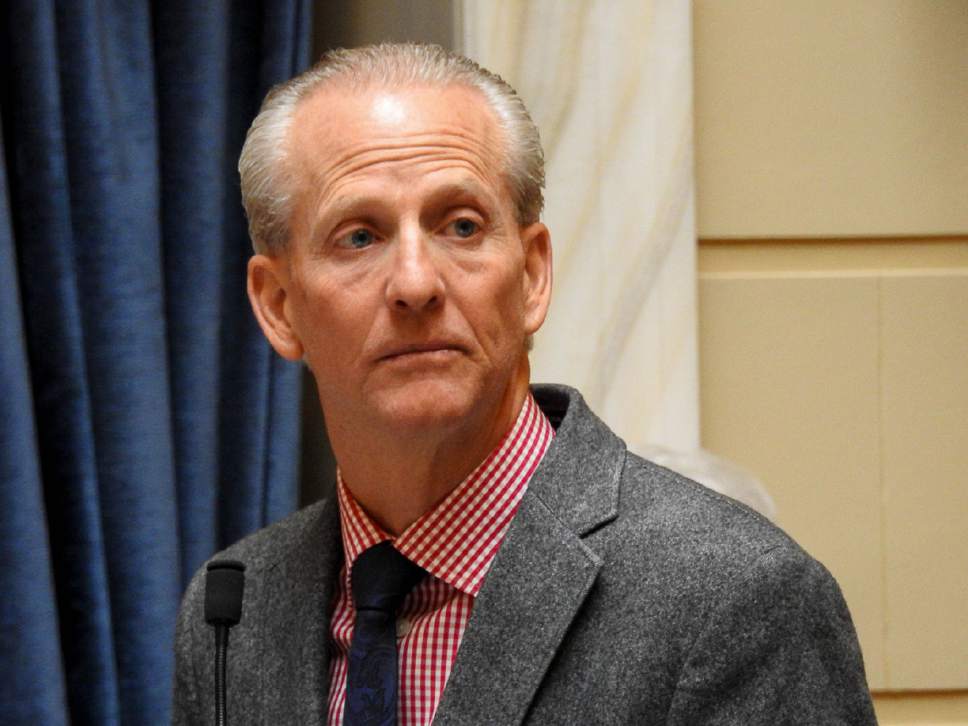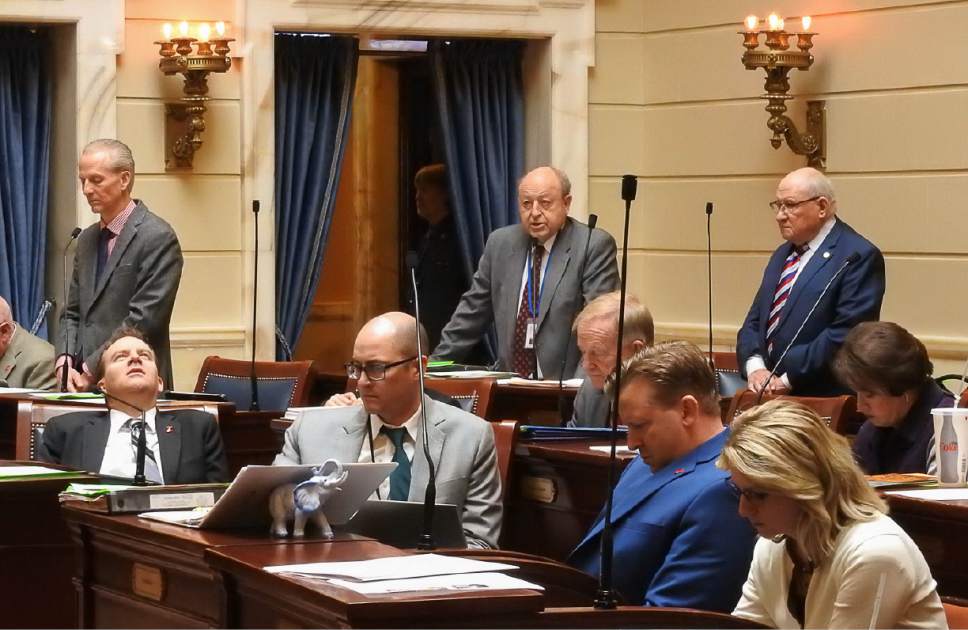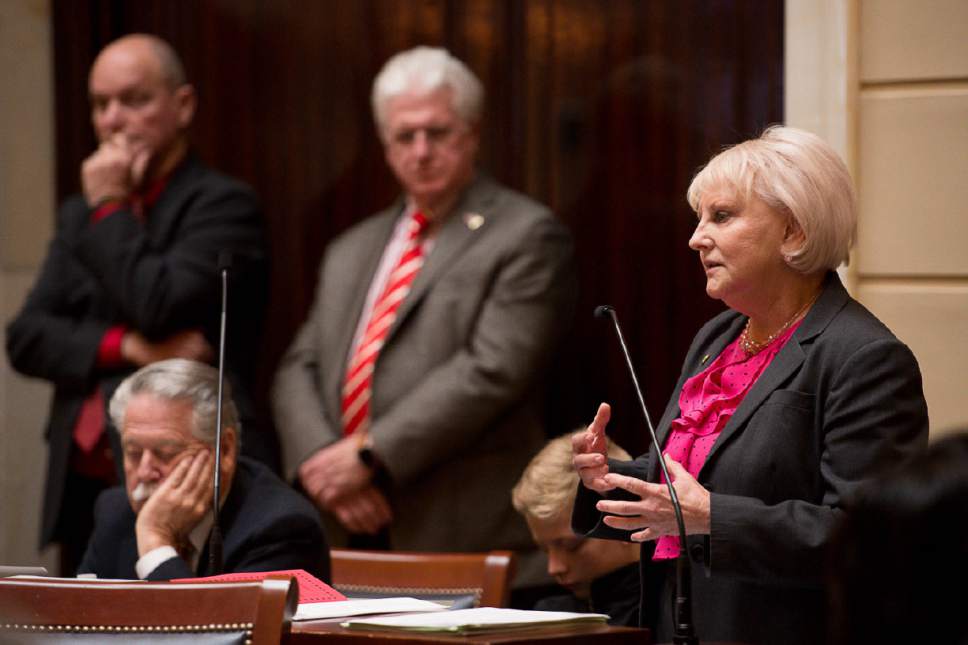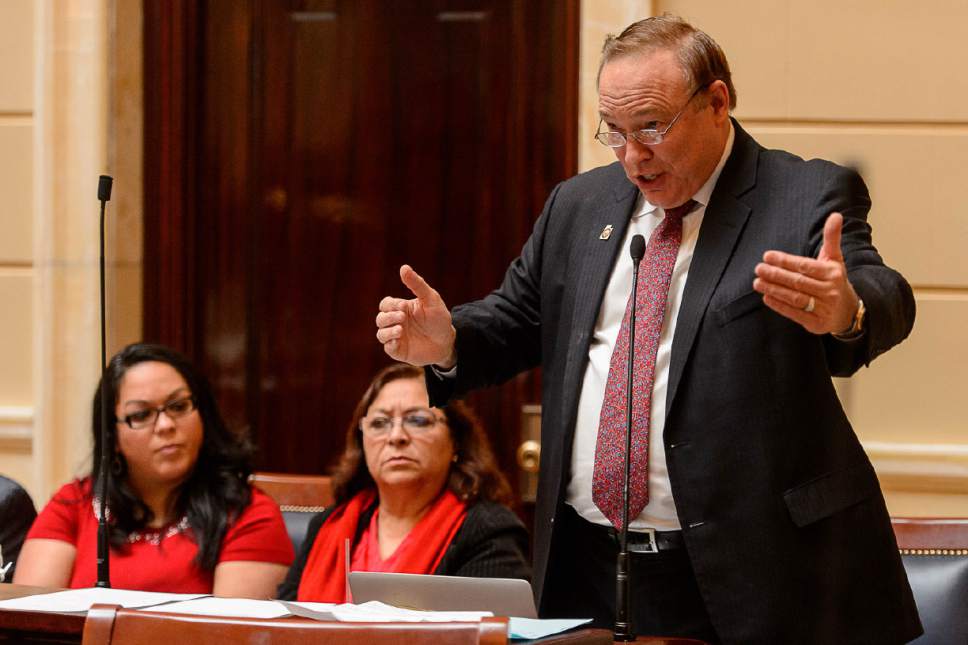This is an archived article that was published on sltrib.com in 2017, and information in the article may be outdated. It is provided only for personal research purposes and may not be reprinted.
The Utah Senate on Friday joined the House in urging President Donald Trump to rescind the designation of the Bears Ears National Monument.
In a 22-6 vote that split almost entirely along party lines, senators approved HCR11, which asserts that Utahns are in the best position to care for the state's public lands and asks Trump to undo the December action by Barack Obama that protects 1.35 million acres near San Juan County's Cedar Mesa.
Gov. Gary Herbert signed the measure Friday evening, according to a spokeswoman.
Debate over the resolution focused primarily on the designation process.
Sen. Todd Weiler, R-Woods Cross, said there is broad agreement that the Bears Ears area is worthy of preservation. But through his executive action, Weiler said, Obama ignored the wishes of local residents, including American Indians.
"The footprint is too large," Weiler said. "The process was wrong, and I find it insulting that President Obama couldn't even interrupt his golfing in Hawaii to announce this."
Senate President Wayne Niederhauser, R-Sandy, was the Senate sponsor of the resolution. He said a Bears Ears monument created by Congress may have still prompted opposition from Utahns, but it would not have motivated him to sponsor a resolution to rescind.
He said he would have preferred passage of the Public Lands Initiative, a preservation plan developed by Utah Republican Reps. Rob Bishop and Jason Chaffetz.
The lands contained within the Bears Ears monument are similar to those included in the PLI, Niederhauser said, but the legislative process would have been more inclusive and representative.
"It's been years of listening and working on a bill that could be presented to Congress and sent to the president," Niederhauser said of PLI. "That's all circumvented by one person's stroke of a pen. It's absolutely wrong."
But Sen. Jim Dabakis, D-Salt Lake City, said Obama was compelled to act in part due to the refusal of Utah's congressional delegation to work with the executive branch.
"Utah would not listen," Dabakis said. "We would not be serious about negotiation."
He criticized the desire of some Utah Republicans to take ownership of federal lands within the state, saying the costs associated with that oversight would drain Utah's resources.
"Heaven help us if this dog catches that car," Dabakis said. "If we ever did get all the federal land, the taxpayers in Utah would go broke."
And Sen. Gene Davis, D-Salt Lake City, said Obama allowed Bishop and Chaffetz ample time to prepare and lobby for their Public Lands Initiative.
When their efforts were unsuccessful, Davis said, the former president took action to preserve areas held sacred by an intertribal coalition.
"The president did his duty in declaring that this land should be preserved," Davis said. "I think it is wrongheaded to do this. I think the action of the president was totally appropriate."
Rep. Bruce Cutler, R-Murray, voted against the measure, along with the Democrats.
Sen. David Hinkins, R-Orangeville, said the monument designation works against the desire of native tribes to protect sacred lands.
National parks and monuments fall victim to vandalism and disrespect, he said, due to the increased number of visitors.
"All you're doing is inviting more people to go there and to recreate," Hinkins said.
Senators also objected to the effect the monument could have on public education funding, with roughly 109,000 acres of school trust lands contained within the monument.
The large amount of federal land within the state diminishes the funding available for public schools, Sen. Lyle Hillyard, R-Logan, said.
"They ought to be paying property tax on it just like any private owner," Hillyard said. "That would solve our education problems in Utah. That's where we need to get our money and that's why we need to develop it."
Sen. Karen Mayne, D-West Valley City, said the monument is for all Utahns, not just local residents in San Juan County. Her district is urban, she said, and the outdoor enthusiasts she represents rely on areas like national parks and monuments for recreation.
"We have campers," Mayne said. "We fish, we hunt, we hike, we have to go places to do that and it gets harder and harder."
Only one Republican senator, Cottonwood Heights' Brian Shiozawa, joined the five Senate Democrats in opposing the resolution.
The House had approved the resolution on Tuesday in a 60-14 vote divided fully along partisan lines.
An additional resolution calling for a reduction of the Grand Staircase-Escalante National Monument passed the House in a 61-13 vote. That resolution was approved by a Senate committee Thursday evening, but has not yet received a debate on the Senate floor.
Niederhauser said there have been indications that Trump's administration is willing to consider action on the Bears Ears and Grand Staircase-Escalante monuments.
The resolutions send a message, he said, that the state is looking for a more balanced approach to the preservation of public lands.
"We're now placing this in the hands of those in Washington and we'll see where it goes from here," Niederhauser said.
Twitter: @bjaminwood


